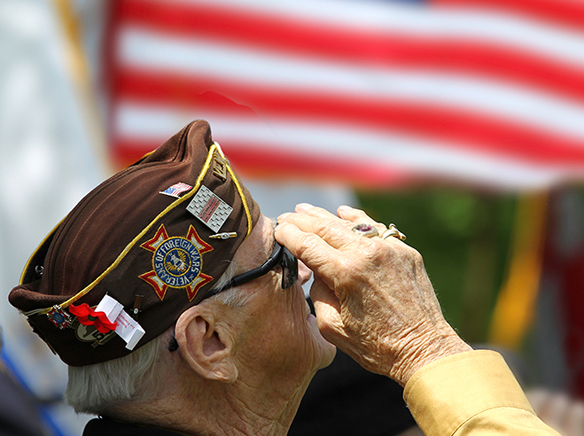It has been said that in war, there are no unwounded soldiers. Sometimes, the deepest wounds are the ones we can’t see.
Many veterans who return from combat face a new internal battle that continues long after their war has ended. And while they may look fine on the outside, something inside of them has changed forever. We now have a name for what they experience: post-traumatic stress disorder, often referred to as PTSD.
It has been said that in war, there are no unwounded soldiers. Sometimes, the deepest wounds are the ones we can’t see.
Many veterans who return from combat face a new internal battle that continues long after their war has ended. And while they may look fine on the outside, something inside of them has changed forever. We now have a name for what they experience: post-traumatic stress disorder, often referred to as PTSD.
Throughout history, people have struggled to understand why some veterans are changed after combat. A number of terms have been used to describe their symptoms such as flashbacks, emotional numbness, heightened anxiety, difficulty sleeping or self-isolation. After the Civil War, they were thought to suffer from “soldier’s heart.” Phrases from subsequent wars include shell shock, battle fatigue, operational exhaustion and post-Vietnam syndrome.
Advocacy efforts and better understanding among the mental health community led to the adoption of the phrase “post-traumatic stress disorder,” which encompasses the range of psychological and physiological symptoms of people who have experienced or witnessed a traumatic or near-death experience.
Mounting stress
Many veterans with symptoms of PTSD avoid seeking help for decades, facing daily struggles with the stoicism and bravery instilled in them by the military. In later years, previous coping strategies — such as avoidance or emotional numbing — may break down.
Being informed of a terminal illness can mimic the original trauma of death, and this threat to life may exacerbate previous symptoms and create intense stress. This can complicate the dying process for a person nearing the end of life.
“At the end of life, PTSD can be expressed as traumatic experiences that may be aspects of nightmares or delirium,” explains Teressa Vaughn, Advance Care Planning consultant for Sharp HospiceCare. “They may have difficulty sleeping because of disturbing thoughts, traumatic memories, paranoia, anxiety, emotional numbing, irritability and hallucination-like episodes of their wartime experience. As a result, they may become confrontational.”
Today, we have a better understanding of the long-term effects of combat and how to help those suffering from the invisible wounds of war. People with PTSD tend to cope by avoiding or ignoring problems, which may cause them to resist medical, psychosocial and spiritual care. Some lack caregivers or family support because of a history of mental challenges, social isolation or avoidance. Sharp HospiceCare trains its staff on ways to accommodate the special needs of veterans in their care.
“Not every veteran will have PTSD, so we must not make assumptions based on the title of ‘veteran,’” according to Vaughn. “If PTSD is present in the life of a veteran, the magnitude and time spent in a specific war and previous traumas are major factors in determining their needs.”
Supporting veterans
Sharp HospiceCare also participates in the We Honor Veterans program to help address veteran needs and issues, such as PTSD. We Honor Veterans is a national awareness campaign that addresses the growing need for veteran-centered care. The program provides educational materials and resources that hospices need to improve care and strengthen partnerships with the Department of Veterans Affairs.
Veteran volunteers play an important role in Sharp HospiceCare, replacing lost medals, obtaining Certificates of Release or Discharge from Active Duty or simply being a listening ear — all things that may aid a patient in feeling relief from grief caused by war. The military’s culture of stoicism can discourage veterans from sharing their war experiences, but when one veteran talks to another, stoicism and secrecy may dissolve. Sharing supports life review and healing during the final stages of life.
Men and women who serve in the military have assumed the ultimate duty: to protect the rights and freedoms enjoyed by all Americans. It is our duty to help and support them. By understanding what they’ve been through and what matters most to them, by taking the time to listen and honor their needs and wishes, Sharp HospiceCare hopes to guide veterans’ life stories toward a peaceful ending.
This article features experts from Sharp HealthCare. For more health stories visit www.sharp.com/news.















Your way of telling the whole
Your way of telling the whole thing in this paragraph is really good,
every one can easily be aware of it, Thanks a lot. http://www.insideworld.com/redirect.php?url=http://wiki.balluffmex.com/index.php%3Ftitle=2_Things_Almost_Everyone_Misses_From_When_Improving_Their_Mental_Health